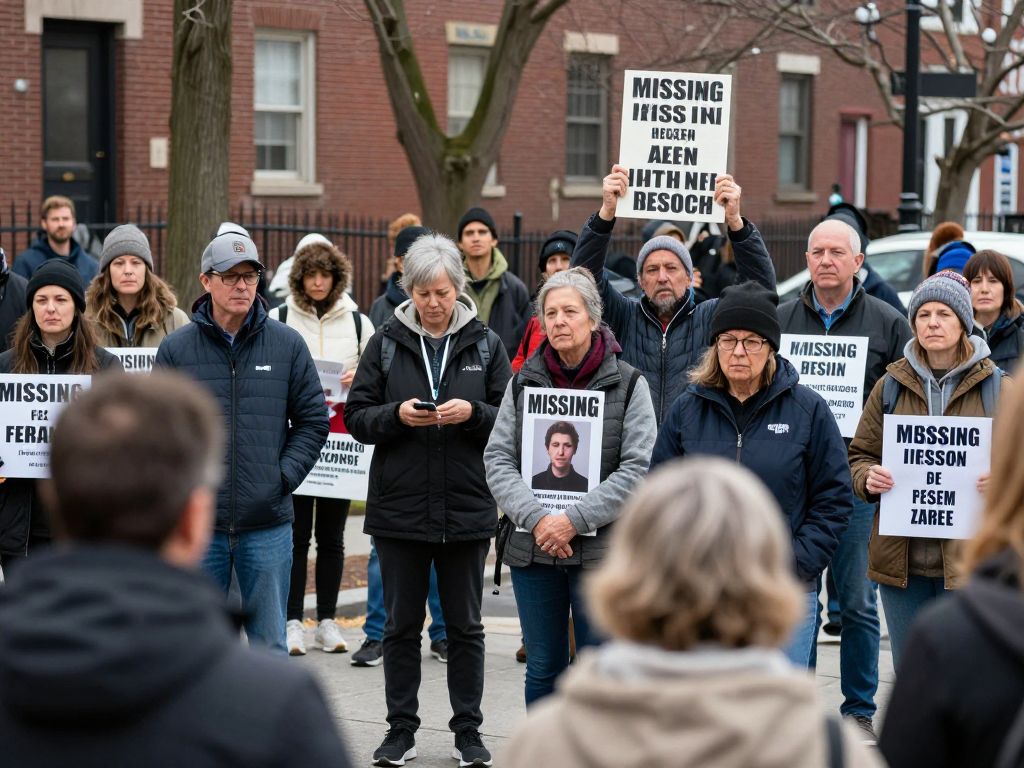News Summary
Business confidence in Massachusetts has plummeted to its lowest levels since the COVID-19 pandemic began, with the AIM Business Confidence Index falling to 46.0. This decline marks a drop of almost 10 points in just two months, as concerns over tariffs, rising costs, and trade wars have left many business leaders apprehensive about the future. The survey indicates that a majority of companies are feeling the strain from escalating expenses and are reconsidering their hiring and investment plans amidst these uncertain times.
Boston, Massachusetts – Business confidence in Massachusetts has dropped to its lowest levels since the onset of the COVID-19 pandemic, according to a recent report from the Associated Industries of Massachusetts (AIM). The AIM Business Confidence Index fell by 4.4 points in March, reaching a total of 46.0. This figure is indicative of negative sentiment among businesses and marks a significant decline of nearly 10 points over the past two months.
This decline in business confidence starkly contrasts with the optimism that was prevalent following the election of Donald Trump in November 2016. The latest survey, conducted before Trump’s announcement of steep tariffs on April 2, reflects a growing unease among business leaders regarding potential trade wars.
Sara Johnson, chair of AIM’s board of economic advisers, pointed to the disruption caused by Trump’s tariffs and the uncertainty surrounding federal tax and spending policies as key factors influencing the drop in confidence. A manufacturer participating in the survey highlighted that the tariffs and cuts in federal funding are affecting their ability to procure necessary raw materials and maintain cost-effective product delivery.
The AIM index is scored on a 100-point scale, with a score of 50 representing a neutral stance. Currently, the index stands below this neutral level but remains above the all-time low of 33.3 recorded during the Great Recession in February 2009. Notably, in December, 43% of Massachusetts Business Roundtable members believed Trump’s policies would negatively affect the state’s economy. By March, this figure increased to 88%, with no respondents anticipating any positive effects.
Concerns regarding tariffs and federal spending cuts were predominant among survey participants. Economists suggested that high tariffs could pose significant threats to Massachusetts-based businesses engaged in global trade. The reduced confidence levels observed in the survey have already begun to result in decreased spending, raising fears about a potential recession in the state.
Amid these challenges, employers in Massachusetts are increasingly opting to hire remote workers situated in other states due to the high cost of living in the area. More than 85% of participating companies reported having remote staff affiliated with their Massachusetts operations, with the percentage of firms hiring out-of-state employees swelling from 70% in previous years. These trends have been further exacerbated by the COVID-19 pandemic and rising living expenses.
Survey results indicated that 66% of respondents cited factors like rising housing costs and escalating business expenses, including electricity and healthcare, as influences affecting their operations in Massachusetts. The issues of trade uncertainty, evolving federal policies, and fears of a national downturn create an atmosphere of worry among business leaders, prompting many to pause hiring or investment plans.
The Massachusetts Business Roundtable’s survey illustrates the competitive challenges that businesses face in the state and emphasizes the necessity for collaborative efforts to tackle workforce development and the adoption of artificial intelligence. Governor Maura Healey has acknowledged the urgency of creating jobs and lowering costs, identifying them as crucial priorities for her administration.
The survey featured responses from 51 member companies, predominantly mid-sized and large employers, offering a snapshot of the prevailing sentiment among Massachusetts businesses. As state leaders seek to address these ongoing issues, the focus will likely shift towards reinforcing partnerships that can enhance the business environment and support sustainable growth.
Deeper Dive: News & Info About This Topic
- Boston Globe: Business Confidence in Massachusetts Plunges
- Wikipedia: Business Confidence Indicators
- Berkshire Eagle: Executive Spotlight – JD Chesloff
- Google Search: Massachusetts Business News
- Boston Globe: CEOs to Dine with Mass Competitiveness Menu
- Google Scholar: Business Confidence in Massachusetts
- iBerkshires: BCC State of Work Summit
- Encyclopedia Britannica: Business
- Boston Globe: Remote Work in Massachusetts
- Google News: Massachusetts Economy

Author: STAFF HERE BOSTON WRITER
The BOSTON STAFF WRITER represents the experienced team at HEREBoston.com, your go-to source for actionable local news and information in Boston, Suffolk County, and beyond. Specializing in "news you can use," we cover essential topics like product reviews for personal and business needs, local business directories, politics, real estate trends, neighborhood insights, and state news affecting the area—with deep expertise drawn from years of dedicated reporting and strong community input, including local press releases and business updates. We deliver top reporting on high-value events such as Boston Marathon, Head of the Charles Regatta, and Boston Harborfest. Our coverage extends to key organizations like the Greater Boston Chamber of Commerce and Associated Industries of Massachusetts, plus leading businesses in finance, biotech, and insurance that power the local economy such as Fidelity Investments, Biogen, and Liberty Mutual Insurance. As part of the broader HERE network, we provide comprehensive, credible insights into Massachusetts's dynamic landscape.





